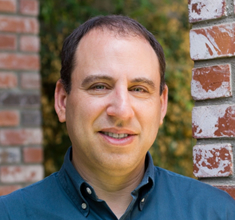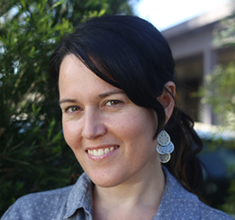Managing Oprah’s Community
 Oprah Winfrey has one of the strongest personal brands in the world, with a massive legion of fans, subscribers and supporters interacting with her online initiatives every single day. This includes a substantial online community and UGC-tied efforts.
Oprah Winfrey has one of the strongest personal brands in the world, with a massive legion of fans, subscribers and supporters interacting with her online initiatives every single day. This includes a substantial online community and UGC-tied efforts.
Jenn Pedde spent almost two years as lead community manager for Oprah’s online communities. This included tranisitioning from the previous community management team, that had been in place for 16 years, as well as moderation, staffing, community engagement, customer service and more. Plus:
- Why (some) for-profit companies should launch alumni networks for ex-employees
- The creation of #cmgrchat and the viability of Twitter chats in 2016
- Imposter syndrome and how Jenn felt it when taking over the Oprah account
 When it comes to community guidelines, there is a lot more to them than just writing and publishing a single document. The application of them spawns a series of processes that ensure consistency and keep them up to speed with challenges currently facing the community.
When it comes to community guidelines, there is a lot more to them than just writing and publishing a single document. The application of them spawns a series of processes that ensure consistency and keep them up to speed with challenges currently facing the community.
 As health care and pharmaceutical companies aim to better understand specific medical conditions, they are turning to online communities of engaged patients, to conduct research and recruit for clinical trials.
As health care and pharmaceutical companies aim to better understand specific medical conditions, they are turning to online communities of engaged patients, to conduct research and recruit for clinical trials.
 The ability to communicate clearly is so important for community professionals. We say this a lot, but we rarely break it down much beyond that. What we really mean is that you have to be able to explain things. Explanation is a skill.
The ability to communicate clearly is so important for community professionals. We say this a lot, but we rarely break it down much beyond that. What we really mean is that you have to be able to explain things. Explanation is a skill.
 Reddit is an online community, possibly best described as a series of smaller ones, much like independent niche online communities. One subreddit (or section of Reddit) can be completely different from another.
Reddit is an online community, possibly best described as a series of smaller ones, much like independent niche online communities. One subreddit (or section of Reddit) can be completely different from another.
 Membership-based associations have existed for a long time. Certainly before the internet and before online communities. But as online communities have grown in prominence, the association model has shifted to embrace them, mirroring the offline communities that they were already building.
Membership-based associations have existed for a long time. Certainly before the internet and before online communities. But as online communities have grown in prominence, the association model has shifted to embrace them, mirroring the offline communities that they were already building.
 It can be a big challenge to redesign an online community. Our members visit on a regular basis, and they become accustomed to how things look and where they’re located. To the point where they can become resistant to change.
It can be a big challenge to redesign an online community. Our members visit on a regular basis, and they become accustomed to how things look and where they’re located. To the point where they can become resistant to change.
 Abusive lawsuits and legal maneuvers threaten our communities and our members by silencing them under the weight of excessive litigation and costly attorney’s fees.
Abusive lawsuits and legal maneuvers threaten our communities and our members by silencing them under the weight of excessive litigation and costly attorney’s fees.

 Last week, the European Commission announced that Facebook, Twitter, YouTube and Microsoft had agreed to
Last week, the European Commission announced that Facebook, Twitter, YouTube and Microsoft had agreed to